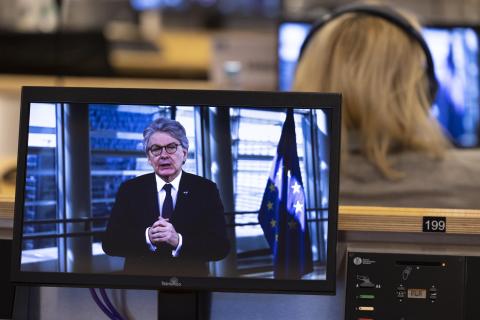European Economic
and Social Committee
Access to raw materials is becoming fundamental for the success of the twin transition
The key role of raw materials was discussed at a high-level conference hosted by the EESC on 31 January. The conference focused specifically on two main aspects: the essential role that critical raw materials play in securing the EU's strategic autonomy in the green and digital transition and the importance of circularity in creating a market for secondary raw materials in Europe.
"For most raw materials, Europe is heavily dependent on the rest of the world. Europe must lead the way in demonstrating that this industry can be sustainable in environmental and human terms," said EESC president Christa Schweng, who also stressed the need for strategic partnerships with like-minded countries around the world.
Thierry Breton, European Commissioner for the Internal Market, addressed the conference through a video message and said, "We will need 60 times more lithium by 2050 for electric batteries for vehicles. I have no doubt that the circular economy will become the new modus operandi for raw materials. It will be another crucial tool at our disposal to ensure the security and resilience of our supply chains. The EESC and the European Commission are on the same page".
Agnès Pannier-Runacher, French Secretary of State for Industry, recognised critical raw materials as a key issue for Europe's autonomy in the transition to a green and digital economy based on a circular model. With Europe's energy autonomy featuring among the priorities of the French presidency of the Council of the European Union, "we cannot allow our dependence to shift from fossil fuels to a new dependence on these strategic metals", she said.
The panellists agreed that Europe must show global leadership in this area by raising its environmental, social and governance standards to unprecedented levels.
"The EESC is fully aware of the urgent need to address the issue. The EESC believes that the actions envisaged by the European Commission are essential if we are to maintain and strengthen the EU's industrial base," said the president of the EESC's Consultative Commission on Industrial Change, Pietro Francesco De Lotto, who chaired the conference.
In conclusion, public institutions must continue to join forces and act and civil society must continue its involvement in this area. (ks)
